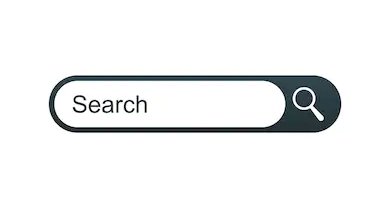Doing a #SystematicReview and you heard you need an #InformationSpecialist on board?
YES - they help identify databases and other sources of evidence, help build and test your search string, and advise on search strategy conduct and reporting
What if you don't have one? ...
YES - they help identify databases and other sources of evidence, help build and test your search string, and advise on search strategy conduct and reporting

What if you don't have one? ...
1. Check if your (or your collaborators') institution has a library - they probably have information specialists who love helping with #SystematicSearching #Library #Librarians #MedLibs
2. Check if there are info specialists further afield who might be able to help - it's good practice to include them as co-authors because of the complex work they undertake in designing reviews. Maybe this is a suitable #Incentive? Maybe you could budget them into proposals?
BUT - sometimes you just can't find someone with time to spare to help you out. So what should you do?
3. Consider not doing a systematic review. No, really! Why not do some other kind of work that would be more valuable given constrained resources?
4. OK, you really a systematic review. Get reading! Information retrieval is an entire field - there is SO much to read and so much support: 1,056 titles in http://lens.org include '"systematic review" AND search*' https://link.lens.org/K1H2nupqZQi #LibGuide
5. Check out guidance and pointers from systematic review coordinating bodies like @EnvEvidence, @campbellreviews, and @cochranemthds. Their guidance has general advice, e.g. CEE - https://environmentalevidence.org/information-for-authors/
6. Check out some of the tools that can help you build and test a search strategy: @srtoolbox has 55 http://systematicreviewtools.com/advancedsearch.php
7. Take some training in #EvidenceSynthesis methods, like this free systematic review and mapping methods course offered by @EnvEvidence: https://systematicreviewmethods.github.io/
8. Ask a #FriendlySystematicReviewer - we might be busy, and it might take us some time, but lots of us are keen to support capacity building. If we can't help ourselves, we can point you to someone who might. CAVEAT: I'm not an info specialist, but have a lot fo SR experience.
9. Seek feedback from info specialists by submitting your plans as a ' #protocol' or a #RegisteredReport. Peer review can really help identify where you can strengthen your planned methods - and it's a great opportunity to showcase your ongoing project! https://environmentalevidence.org/information-for-authors/4-writing-and-registering-a-protocol/
10. Understand that there is no such thing as a 'perfect' search strategy - it's a trade-off between being sensitive (getting everything) and specific (getting ONLY what you want) in your results. Remember you still have to screen the results!
11. At the end of the day, searching is probably THE most important part of an #EvidenceSynthesis project - YOU want it to be good. WE want it to be good. Everything depends on this step being fit-for-purpose.

 Read on Twitter
Read on Twitter


